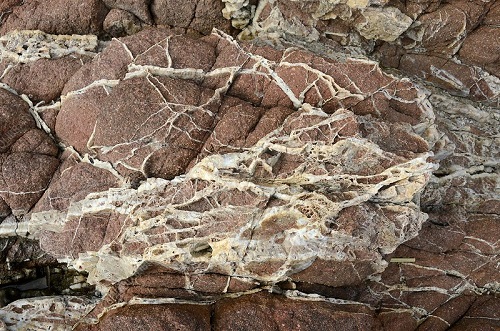FWP:
SETS == WORDPLAY
BONDAGE: {1,5}
For background see S. R. Faruqi's choices. For more on Ghalib's unpublished verses, see the discussion in {4,8x}.
For more on this colloquial use of ma((luum , see {4,3}.
Sparks are said to flow in the 'veins' of rocks the way blood flows in human veins-- after all, when you strike a human you get blood, and when you strike a rock you get a spark. This is the normal logic of the metaphor; for more on verses about sparks and rocks, see {20,6}.
In this verse, however, the veins of a rock are presented as a ramifying network, reticulated like a net; thus they're suitably shaped to suggest the trapping of a hunter's prey, usually a bird or small animal, inside a net. The spark is trapped within this net of rock-veins, with its rough 'harshnesses', for as long as it lives; if it emerges into the outer world, it's only to die at once.
With the same irrevocability, humans are trapped within the 'harshnesses' of the (social? biological?) network of life. They have no more chance of escaping than the spark does-- and then, only on the same terms.
As Zamin notes, the dense wordplay itself forms a kind of network of affinities.
As Asi notes, an excellent verse for comparison is {115,5}.

Asi:
From the harshnesses of the prison of life, freedom, while alive, is nonsensical and impossible. Look at the spark, that is bound within the net of the threads of the rock-veins (those lines that exist in rock) and cannot be free. In the same way, no person, while alive, can find freedom from the prison of harshness. In one place, in a philosophical style, he says, {115,5}.
== Asi, p. 239